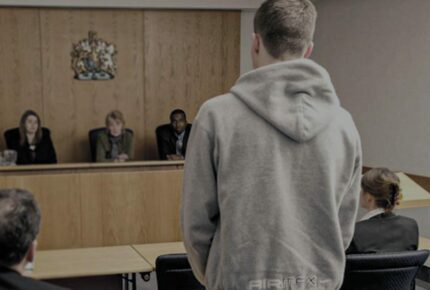

In today’s digital age, the proliferation of indecent images is an ever-growing concern. The distribution of such content not only poses a serious threat to individuals involved but also has far-reaching consequences for society and the safety of children in general. At Stuart Miller Solicitors, we understand the distressing and overwhelming nature of this situation. This article aims to outline what happens to someone faced with the offence of distributing indecent images for the first time under English law, shedding light on the offence itself, potential examples, the possible sentencing that awaits, and crucially, exploring whether imprisonment is likely for a first-time offender.
What is the offence of distributing indecent images?
Section 1(1)(b) of the Protection of Children Act 1978 makes it an offence to distribute indecent images of children. This includes distributing the images by hand, by post, or electronically. It is also an offence to possess indecent images of children with a view to distributing them.
Indecent images of children are defined as any images that show a child under the age of 18 engaged in sexual activity, or that show a child’s genitals or sexual organs in a way that is sexually suggestive.
To secure a conviction for distributing indecent images of children under Section 1(1)(b) of the Protection of Children Act 1978, the prosecution must prove the following elements:
- That the defendant distributed an indecent image of a child.
- That the defendant knew or intended that the image was indecent.
- That the defendant knew or intended that the image was of a child.
The prosecution does not need to prove that the defendant intended to harm the child in any way. It is sufficient to prove that the defendant distributed an indecent image of a child, knowing or intending that it was an indecent image of a child.
The prosecution can prove these elements by using a variety of evidence, such as:
- The images themselves.
- Electronic records, such as emails, chat messages, and file sharing logs.
- Witness statements, such as statements from people who saw the defendant distributing the images or who have knowledge of the defendant’s involvement in the distribution of indecent images of children.
If the prosecution is able to prove all of the elements of the offence beyond a reasonable doubt, the defendant will be convicted of distributing indecent images of children.
What are some examples of distributing indecent images?
Here are some examples of how the offence of distributing indecent images could be committed:
- Sending indecent images of children to someone else via email, WhatsApp, or social media.
- Uploading indecent images of children to a website or online forum.
- Sharing indecent images of children via a peer-to-peer file sharing network.
- Selling or distributing indecent images of children on a commercial basis.
- Storing indecent images of children on a personal device, such as a computer or phone, and then sharing the device with someone else.
- Showing indecent images of children to someone else, even if the images are not physically distributed.
What happens if you are suspected of distributing indecent images in the UK?
If you are suspected of distributing indecent images in the UK, the police are highly likely to take action due to the severe nature of the crime and the fact that children’s safety is involved. Here is an overview of what can happen if you are suspected of this offence:
- Arrest: In the event that the police possess substantial evidence or reasonable grounds to suspect your involvement in the case, you may find yourself under arrest. This means that you will be taken into custody for further questioning and investigation.
- Questioning: While in custody, you will be subject to police interrogation concerning the alleged offence. It’s essential to remember that you maintain the right to remain silent throughout this process, and you are entitled to have legal representation present during questioning to safeguard your rights.
- Search and Seizure: Law enforcement or relevant agencies may execute searches of your premises, electronic devices, and any other pertinent personal or professional possessions to locate evidence related to the alleged offence. Digital devices may be seized for subsequent examination.
- Bail, Investigation, or Detention: Depending on the circumstances, you might either be granted bail, released under investigation, or detained as further inquiries unfold. Bail conditions could be imposed to prevent any contact with potential witnesses or victims, ensuring a fair and impartial investigation.
- Charging Decision: Following the conclusion of the investigative phase, the police will refer the case to the Crown Prosecution Service (CPS) to determine whether criminal charges should be pressed. The CPS assesses the available evidence and decides whether there are sufficient grounds to proceed with a prosecution.
- Court Proceedings: If charges are indeed filed, you will be summoned to appear in court and face the allegations against you. While you have the opportunity to present a defence, it is strongly recommended that you secure legal representation during this critical phase of the legal process.
- Possible Outcomes: If a court finds you guilty of downloading indecent images, you may be subject to various penalties, including incarceration, fines, community orders, or restraining orders. These consequences hinge on the severity of the offence and other pertinent factors.
- Criminal Record: A conviction for distributing indecent images results in the creation of a permanent criminal record. This record can have far-reaching implications, potentially hampering your employment prospects, restricting your ability to travel, and causing harm to your reputation.
If you find yourself being questioned or arrested, it is advisable to remain silent and promptly seek the assistance of legal counsel. Do not forget that you are entitled to a fair trial and your rights must be protected throughout the legal process, even if you are guilty.
What is the sentence for distributing indecent images in the UK?
The maximum penalty for distributing indecent images of children under Section 1 of the Protection of Children Act 1978 is 10 years in prison. However, the actual sentence that is imposed will depend on a number of factors, including the type and quantity of images that were distributed, the role that the offender played in the distribution, and the offender’s previous criminal record.
For example, a first-time offender who is caught sharing a small number of indecent images of children with friends is likely to receive a less severe sentence than a repeat offender who is caught running a commercial website that distributes indecent images of children.
Other factors that may affect the sentence include:
- The age and maturity of the victim(s) depicted in the images.
- The severity of the abuse depicted in the images.
- The offender’s remorse and cooperation with the authorities.
- The offender’s efforts to rehabilitate themselves.
- The offender’s contribution to society.
- The judge will weigh up all of these factors before determining the appropriate sentence.
In addition to a prison sentence, offenders may also be fined, disqualified from driving, and/or ordered to forfeit any assets that they have gained from their crime. Offenders may also be required to register as sex offenders and to undergo sex offender treatment.
Will I go to prison if it is my first time distributing indecent images?
The likelihood of someone going to prison for their first time offence of distributing indecent images in the UK depends on a number of factors, including:
- The type and quantity of images that were distributed
- The age and maturity of the victim(s) depicted in the images
- The severity of the abuse depicted in the images
- The offender’s remorse and cooperation with the authorities
- The offender’s efforts to rehabilitate themselves
- The offender’s contribution to society
- The offender’s previous criminal record
In general, first-time offenders are less likely to be sentenced to prison than repeat offenders. However, the offence of distributing indecent images is a serious offence, and even first-time offenders can be sentenced to prison.
Other factors that may increase the likelihood of a prison sentence include:
- The distribution of a large number of images
- The distribution of images that depict serious abuse
- The distribution of images that involve young children
- The offender’s previous convictions for drug-related offences
- The offender’s failure to show remorse or cooperate with the authorities
If you are facing charges of distributing indecent images, it is important to seek advice from a qualified and experienced criminal defence lawyer as soon as possible. This is not only to protect your rights, but to ensure that you are not at risk of self-incrimination and that you are well prepared to mount your defence.
Where to get further help
If you or someone you care about is facing charges for distributing indecent images, do not delay – get in touch with a specialist criminal defence solicitor who can help you understand the legal process and compile a solid defence. For more information on your rights and next steps, get in touch with the team at Stuart Miller Solicitors for a free, no obligation, and non-judgemental chat.
OUR COMMITMENTS TO YOU:
-
Responsive
A legal expert will consult you within 24 hours of making an enquiry.
-
Empathetic
We will always treat you with trust, understanding and respect.
-
Specialised
Your case will be handled by an expert who specialises in your type of offence.
-
Proactive
We will take early action to end proceedings as soon as it is practically and legally possible to do so.
-
Engaged
You will be kept updated on your case at all times. We will provide a named contact available to answer your questions.
-
Caring
We understand this is a difficult and stressful time for you and your family. Our team will support you every step of the way.
-
Tenacious
We will never give up on your case. We fight tirelessly to get you the best possible outcome.

